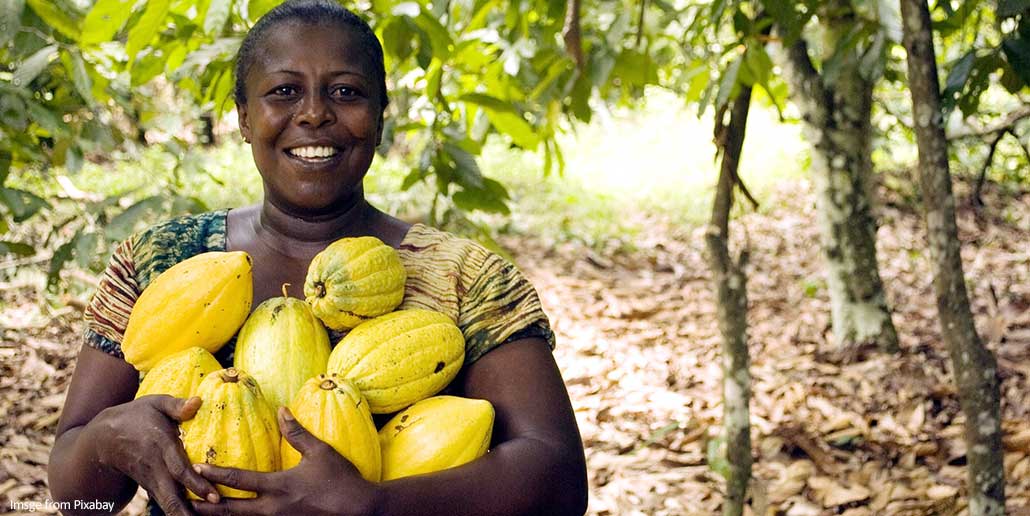
Empowering Farmers
Cocoa farming cooperatives have played a pivotal role in enhancing the livelihoods of farmers across the globe, particularly in West Africa and Latin America. By fostering collective action, these cooperatives empower smallholder farmers to improve productivity, secure better market prices, and invest in community development.
Enhancing Productivity and Income
In Ghana, the Kuapa Kokoo Farmers’ Union exemplifies the success of cooperative efforts. Comfort Kwasibea, a member of this cooperative, has significantly increased her cocoa farm’s productivity, enabling her to improve her family’s living conditions.
Similarly, in Côte d’Ivoire, the Yeyasso cooperative has grown to over 7,200 members, producing 6,000 tonnes of cocoa annually on more than 9,500 hectares. This collective approach has allowed members to adopt sustainable practices, such as agroforestry and organic production, aligning with global trends and market demands.
Community Development and Social Impact
Beyond economic benefits, cooperatives contribute to social development. The CACAO project, for instance, strengthens the capacity of cocoa cooperatives to address child labor and improve accountability within their communities.
In Sierra Leone, cocoa cooperatives have empowered nearly 13,000 farmers, fostering a sense of ownership and enhancing business acumen. This empowerment has led to increased productivity and improved well-being among farmers.
Market Access and Fair Trade
Cooperatives also facilitate access to fair trade markets, ensuring that farmers receive equitable compensation for their produce. In São Tomé and Príncipe, the Organic Cocoa Production and Export Cooperative (CECAB) represents around 3,000 farmers. By producing organic, fair trade cocoa, CECAB members have secured partnerships with premium chocolate manufacturers, enhancing their income and promoting sustainable farming practices.
Challenges and the Way Forward
Despite these successes, cocoa farming cooperatives face challenges, including climate change, disease, and market volatility. Recent reports indicate that farmers in Ivory Coast and Ghana are abandoning cocoa farming due to weather-related issues and failed government policies, despite record prices.
To address these challenges, cooperatives are adopting innovative solutions. For example, the use of traceability systems, such as Cargill’s Cocoa Promise program, enables cooperatives to track cocoa from individual farmers, ensuring transparency and sustainability in the supply chain.
In conclusion, cocoa farming cooperatives have demonstrated significant success in improving the livelihoods of farmers through enhanced productivity, community development, and fair trade practices. Continued support and innovation are essential to sustain these achievements and address emerging challenges in the cocoa industry.
Sources:
- The Commonwealth iLibrary: Case Study – From Tree-minders to Global Players: Cocoa Farmers in Ghana
- FPS Foreign Affairs: Cocoa cooperative Yeyasso responds to major trends
- DOL: CACAO: Cooperatives Addressing Child Labor Accountability Outcomes
- World Bank: Cocoa Cooperatives Put Business in the Hands of Sierra Leone’s Farmers
- WSJ: Cocoa Farmers Uproot Their Plants Despite Record Prices
- IDH – the Sustainable Trade Initiative: Cocoa Traceability Case Study

